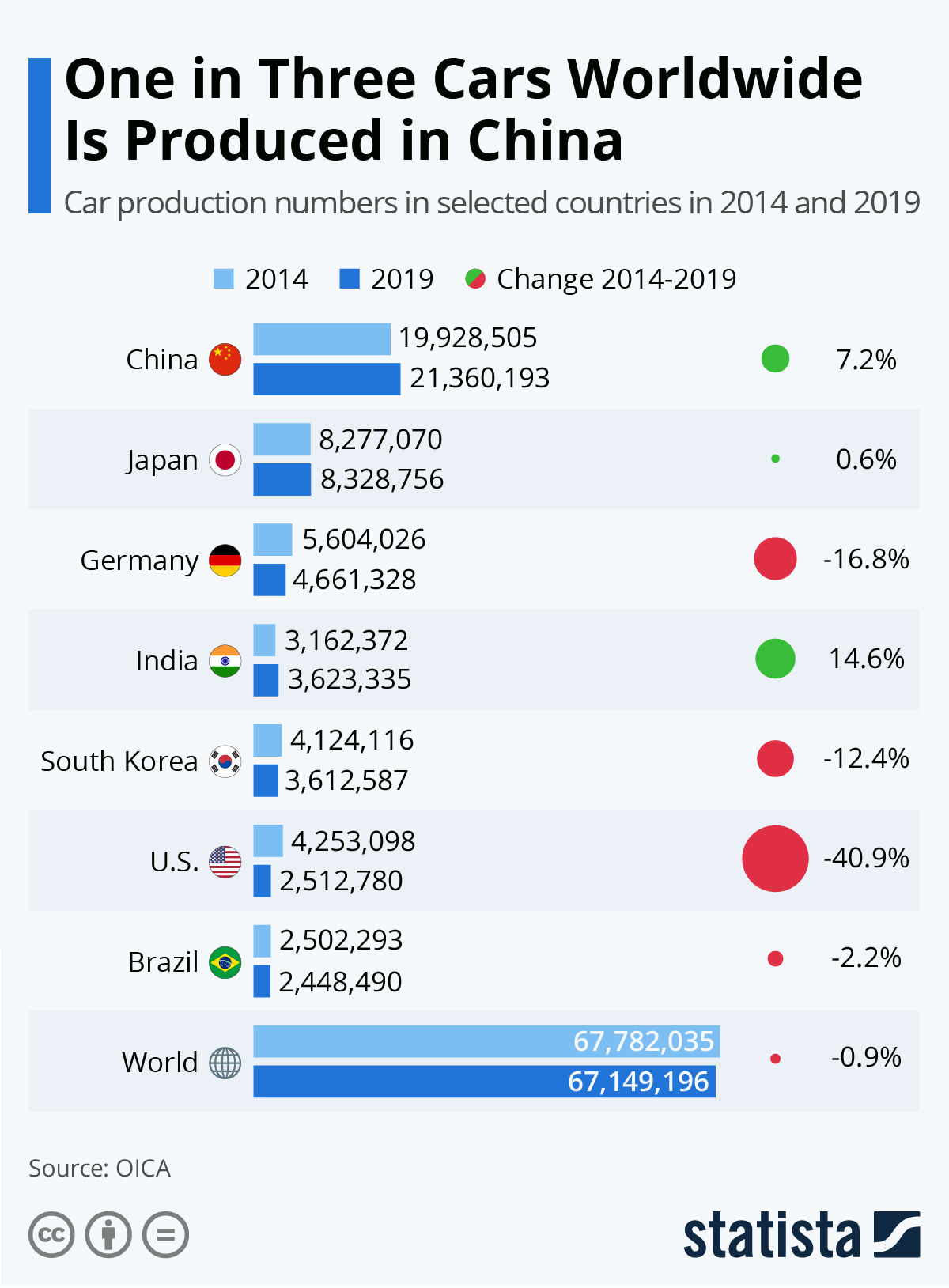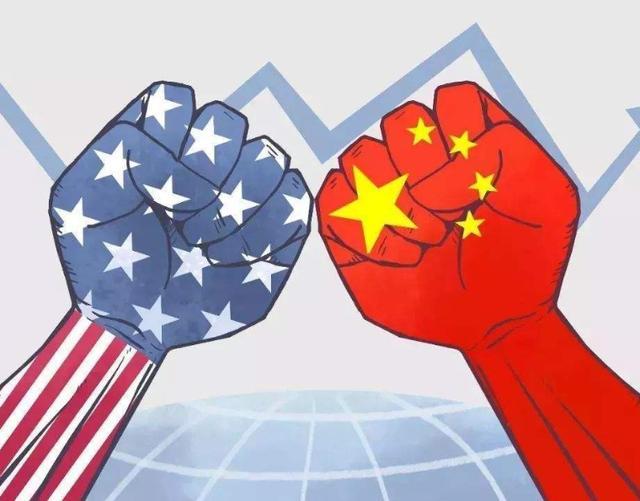The China Factor: Analyzing The Auto Industry's Struggles In The World's Largest Car Market

Table of Contents
Intense Domestic Competition
The rise of powerful domestic Chinese car brands like BYD, Geely, and Great Wall Motors has dramatically reshaped the competitive landscape. These brands are aggressively challenging established international players, leading to a significant squeeze on market share. The competition in the Chinese auto market is fierce, and foreign automakers are feeling the pressure.
- Rapid technological advancements by Chinese manufacturers: Domestic brands are rapidly innovating, incorporating advanced technologies like electric powertrains and autonomous driving features at competitive price points.
- Aggressive pricing strategies from domestic brands: Chinese automakers often leverage economies of scale and government support to offer highly competitive pricing, putting pressure on profit margins for foreign competitors.
- Strong government support for domestic automakers: The Chinese government actively promotes domestic auto brands through various incentives, subsidies, and policies, bolstering their competitiveness.
For example, BYD's success in the electric vehicle (EV) sector has significantly impacted the market share of traditional gasoline car manufacturers. Their strategic use of battery technology and aggressive marketing has captured a substantial portion of the growing EV market in China. Similarly, Geely's expansion into premium segments and strategic acquisitions have allowed them to compete directly with established luxury brands. Understanding these strategies is critical for foreign automakers aiming to succeed in the China auto market.
Navigating Regulatory Hurdles and Policy Changes
China's automotive policy is constantly evolving, presenting significant challenges for foreign automakers. The regulatory environment, encompassing emission standards, safety regulations, and import tariffs, is complex and requires continuous adaptation.
- The complexities of navigating local regulations and certifications: Obtaining necessary certifications and approvals can be a lengthy and cumbersome process, demanding significant resources and expertise.
- Frequent policy adjustments impacting investment and production: Sudden changes in government regulations can disrupt long-term investment plans and production schedules, creating uncertainty for foreign companies.
- The need for localization and compliance with Chinese standards: Meeting Chinese standards for manufacturing, emissions, and safety often requires significant investment in local production facilities and adaptation of vehicle designs.
The rapid shift towards electric vehicles in China, driven by government incentives and emission targets, exemplifies this dynamic regulatory environment. Automakers must invest heavily in EV technologies and comply with stringent emission regulations to remain competitive. The constantly changing import tariffs also add another layer of complexity for foreign automakers relying on imported parts and vehicles.
Understanding the Unique Chinese Consumer
Chinese car buyers possess unique preferences and demands, differentiating them from consumers in other major markets. Catering to these preferences is crucial for success in the China car sales market.
- Preference for technologically advanced features: Chinese consumers highly value technologically advanced features, including infotainment systems, driver-assistance technologies, and connectivity options.
- Growing demand for electric and hybrid vehicles: The increasing awareness of environmental concerns and government support for EVs is fueling strong demand for electric and hybrid vehicles.
- Importance of brand image and social status: Brand image and perceived social status play a significant role in consumer purchase decisions, influencing brand loyalty and purchase choices.
Understanding the influence of social media and online reviews on consumer behavior is also essential. Positive online reviews and influencer marketing can significantly impact brand perception and sales. The Chinese consumer is tech-savvy and well-informed, demanding transparency and authenticity from brands.
Supply Chain Disruptions and Economic Volatility
Economic fluctuations and potential supply chain disruptions represent considerable risks for automakers operating within China. The dependence on Chinese suppliers and global supply chain issues can significantly impact production and profitability.
- Dependence on Chinese suppliers and potential logistical challenges: Relying heavily on Chinese suppliers introduces vulnerability to potential supply chain disruptions caused by factors such as natural disasters, political instability, or economic downturns.
- Impact of global economic downturns on the Chinese auto market: Global economic uncertainty can directly impact the Chinese auto market, affecting consumer confidence and overall demand.
- The need for diversified supply chains and risk management strategies: Implementing diversified supply chains and employing robust risk management strategies are essential for mitigating these potential risks.
Recent global events, including trade tensions and the COVID-19 pandemic, have highlighted the fragility of global supply chains. Automakers operating in China have experienced significant disruptions due to these events, emphasizing the need for robust contingency planning and diversified sourcing strategies. Understanding the intricate dynamics of the China supply chain is crucial for long-term stability and success.
Conclusion
The "China factor" presents a complex but potentially lucrative market for the global automotive industry. Success in this vast market demands a deep understanding of the intense domestic competition, navigating the ever-changing regulatory landscape, catering to unique consumer preferences, and effectively managing potential supply chain disruptions and economic volatility. Foreign automakers must prioritize localization efforts, invest strategically in technological innovation, cultivate strong partnerships with Chinese companies, and closely monitor the dynamic policy environment. By successfully addressing these challenges, companies can unlock the substantial potential of the world's largest auto market and achieve sustainable growth. Ignoring the "China factor" risks significant setbacks. Therefore, a thorough and proactive strategy for the China auto market is absolutely paramount for success in this dynamic and ever-evolving landscape.

Featured Posts
-
 Ray Epps Defamation Lawsuit Against Fox News January 6th Allegations
Apr 22, 2025
Ray Epps Defamation Lawsuit Against Fox News January 6th Allegations
Apr 22, 2025 -
 Russias Renewed Offensive Ukraine Faces Brutal Aerial Attack Us Pushes For Peace
Apr 22, 2025
Russias Renewed Offensive Ukraine Faces Brutal Aerial Attack Us Pushes For Peace
Apr 22, 2025 -
 Aramco And Byd Join Forces To Explore Electric Vehicle Innovation
Apr 22, 2025
Aramco And Byd Join Forces To Explore Electric Vehicle Innovation
Apr 22, 2025 -
 Russias Easter Truce Ends Renewed Fighting In Ukraine
Apr 22, 2025
Russias Easter Truce Ends Renewed Fighting In Ukraine
Apr 22, 2025 -
 Strained U S China Ties Analyzing The Risk Of A New Cold War
Apr 22, 2025
Strained U S China Ties Analyzing The Risk Of A New Cold War
Apr 22, 2025
